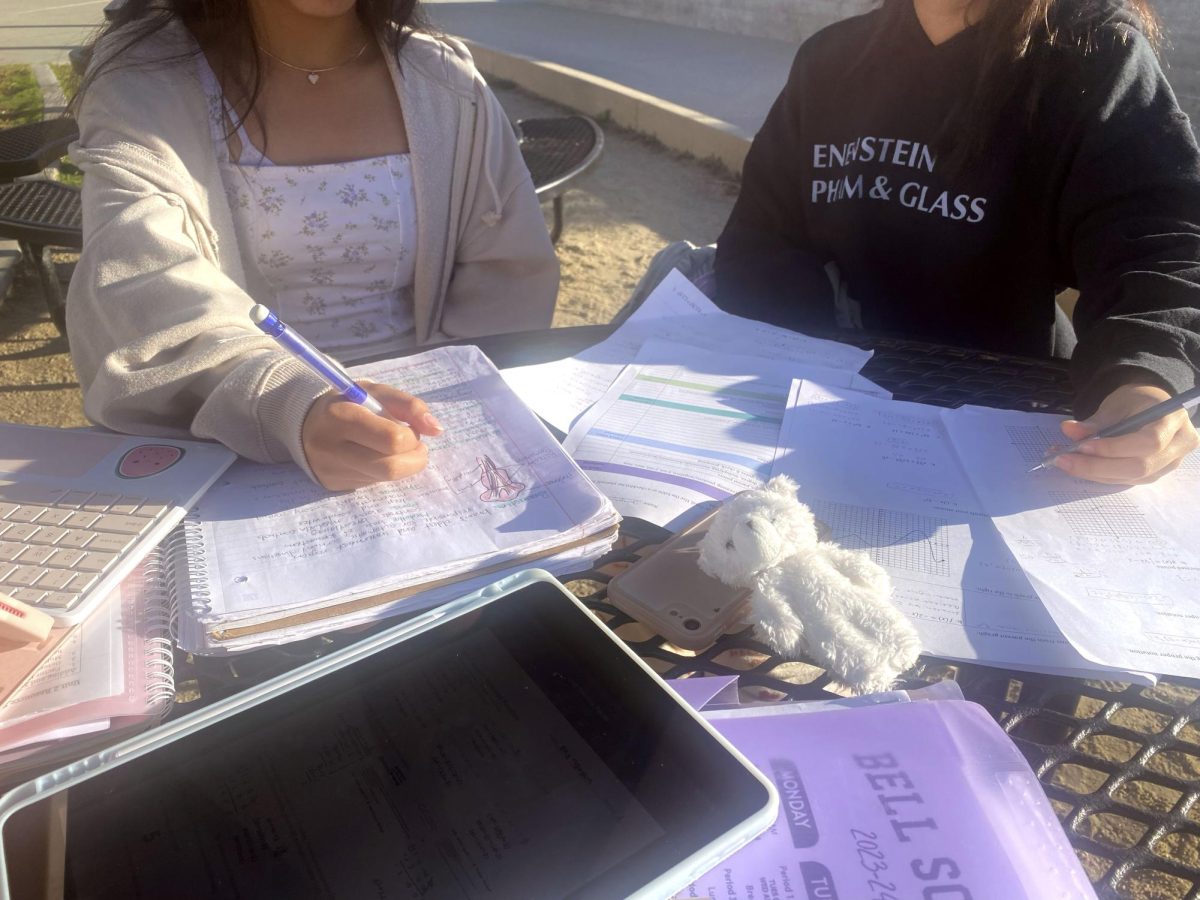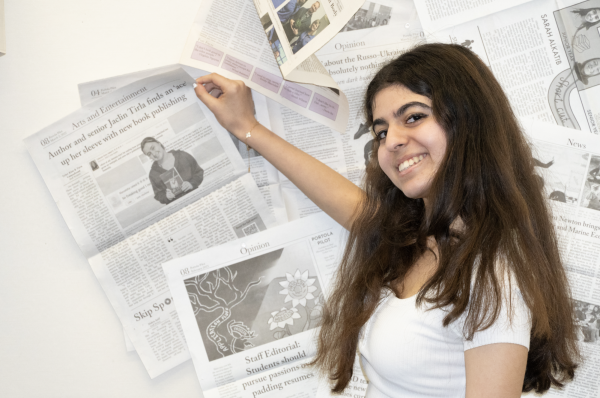As the season of oversized hoodies and 50-question exams is here, students across Portola High frantically prepare for their semester finals. Whether your worries lie in calculus or English, it may seem difficult to find a study method that alleviates your anxiety while also maintaining your focus. Here are a few Portola Pilot-approved study strategies to ease your stress and ace your tests.
Make a Task List
Planning ahead is crucial for organized studying and better time management! Before studying, make a task list for each exam. These lists should have comprehensive tasks of what to study for each subject, when you will do it and how long. You could also write alongside these tasks additional reminders or notes. An example looks like this:
Biology Final (12/13)
- Review Lecture Notes (12/8-12/13, 30 minutes)
- Do Unit Practice Problems (12/8-12/10, 30 minutes)
- Do Practice MCQ’s (12/9-12/11, 15 minutes)
Real-World Applications
It can oftentimes feel like our class content has absolutely nothing to do with our real lives, and can feel unmemorable for exams. One way to mitigate this is by trying to find a real-world or personal connection to vocabulary words in your course so that the random jumble of letters can better lodge itself in your brain.
For example, you can try to think of the way credit card companies use calculus to figure out interest rates and available balances to better understand the rules of differentiation.
Study Based on Class Type
Being able to differentiate which study methods work best for each subject and yourself will boost your confidence in the material and ensure an effective approach to studying your subjects. For content-based classes, dive into memorization using active recall methods like flashcards. Familiarizing yourself with these will help you during exams, particularly in vocabulary.
In theory-based classes like chemistry, grasp the key concepts before problem-solving and use study guides, practice problems and additional resources provided by teachers for a thorough understanding.
An example of studying for your content-based classes is using a visual timeline to study for your AP United States History class. Another example for a theory-based class like AP Physics 1, is to keep a page of example problems with detailed steps and work through more practice problems, keeping these pages as a guideline and for easy revision before the exam.
Hopefully these strategies will help you feel more confident about your classes. Good luck on finals!





